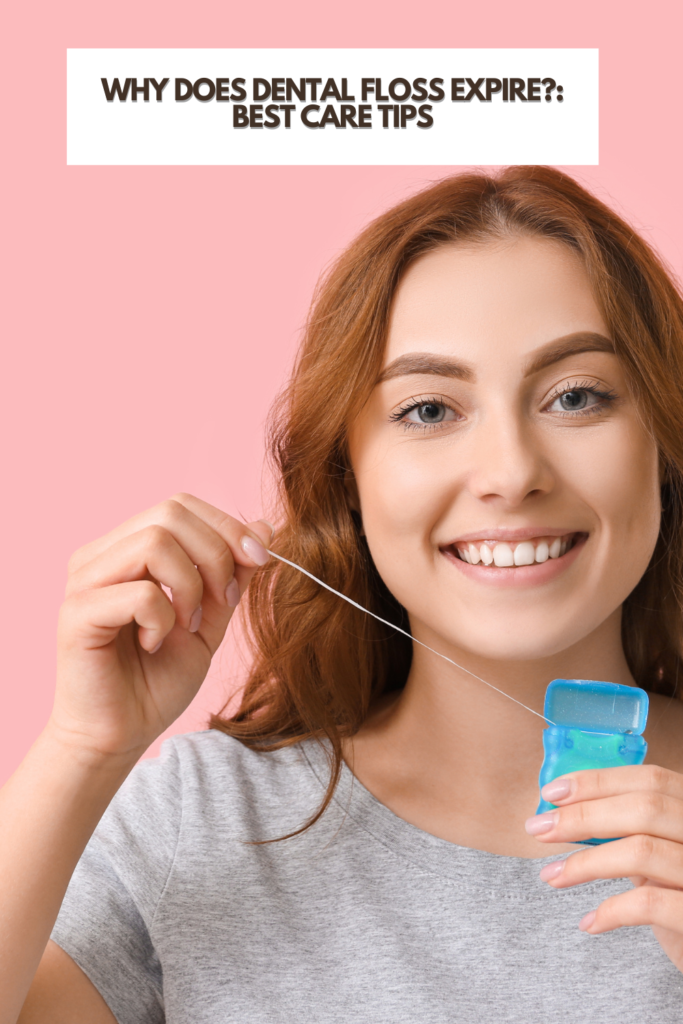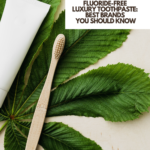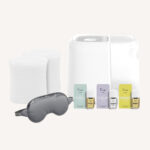Why does dental floss expire? Many people are surprised to learn that dental floss, like many other health and beauty products, has an expiration date. While it may seem strange for a product that doesn’t appear to change over time to expire, several factors contribute to the degradation of floss.
It’s important for us to be aware that its efficacy can decline over time, which can impact its performance in maintaining our oral hygiene.
As a nonperishable item, the expiration of dental floss doesn’t suggest that it will spoil in the traditional sense. However, floss is made of different materials that can lose their strength and flavoring over time.
FTC DISCLOSURE: Some of the links in this post are affiliate links. If you click on them and make a purchase, I will receive a small finder’s fee on the sale. This does not increase your price in any way shape or form. Using these links help support the continuation of this website. All opinions are my own. Thank you in advance.
Since floss plays a pivotal role in removing debris between teeth and maintaining gum health, the quality and integrity of the floss are crucial. In addition to the integrity of the floss itself, storage conditions such as humidity and temperature can also affect its usability and effectiveness.
Key Takeaways
- Dental floss has an expiration date that can affect its effectiveness in oral hygiene practices.
- Storage conditions, materials used, and time can impact the integrity and performance of dental floss.
- Ensuring floss quality and storage conditions optimizes oral health benefits.
Understanding Dental Floss
In exploring dental floss, it’s crucial to consider its composition, usage benefits, and various practices for oral care maintenance. We’ll also look at how it interacts with environmental concerns and regulatory standards.
Materials and Types of Floss
There is not one type of floss on the market there are many. Nylon floss can be waxed or unwaxed and is available in different thicknesses to suit various interdental gaps. Silk floss, while less common, is another option and often considered more eco-friendly.
Some flosses are biodegradable, which is an essential factor for those mindful of their environmental impact. Any of these can be used to properly take care of your teeth.
Benefits of Regular Flossing
Regular flossing is effective in removing plaque from between teeth, which toothbrushes alone might miss. This practice is vital in preventing gum disease, gingivitis, and periodontal disease, all of which can help overall optimal oral health. Flossing regularly is the the best way to maintain a healthy gum line by clearing debris and bacteria that lead to these conditions.
Proper Flossing Techniques
Effective flossing techniques involve gently inserting the floss between teeth and forming a ‘C’ shape against each tooth’s side. Slow, careful movements help prevent harm to the gums while ensuring plaque is adequately removed from the gingival line. This can be done in conjunction with your brushing routine.
Regulatory Perspective
The American Dental Association (ADA) endorses floss as a crucial part of oral hygiene. Products with their seal of acceptance are recognized for having satisfied stringent safety and effectiveness criteria.
YOU MIGHT ALSO LIKE TO READ:
Luxury Flouride Free Toothpastes You Should Know
Dental Floss vs Other Oral Hygiene Products
While oral irrigators and electric toothbrushes are also effective, dental floss is uniquely designed for targeting the tight spaces between teeth. It’s a good idea to include floss in our oral care routine alongside these other hygiene products like toothbrush, toothpaste, and mouthwash. The Scrubby Floss from Risewell is one of our favorites. It’s a great brand with a mission to fight cavities through tartar control.
Product Packaging and Preservation
It’s imperative to keep dental floss in its original packaging to maintain its effectiveness. Proper storage in a cool, dry place protects it from unfavorable temperatures and humidity that can degrade its quality over time. This can also preserve the effectiveness of the ingredients.
Environmental Considerations
Our choice of floss can impact the environment. While traditional floss is not typically recyclable due to its small size and mixed materials, biodegradable options provide an eco-friendly alternative. When considering oral care products, it’s beneficial to weigh the environmental effects of their materials and life cycle.
The Concept of Expiration in Dental Products
We must understand that dental products, including floss, have expiration dates to maintain effectiveness and safety. The integrity of these products can deteriorate over time due to various factors, so let’s explore the specifics of expiration in dental products.
Expiration Date and Shelf Life
Expiration Date is the point at which a product may not perform as intended, whereas Shelf Life indicates how long a product remains effective and safe to use under proper storage conditions. For dental floss, this typically ranges from one to two years. After the expiry date, the product may not provide the optimal benefits and may pose risks due to a chemical breakdown of the compounds present in the floss.
Factors Affecting Floss Degradation
The degradation process of dental floss is influenced by several factors:
- Chemical Breakdown: Over time, the compounds in dental floss can degrade.
- Moisture and Humidity: High levels can accelerate the breakdown of floss components.
- Temperature: Extreme temperatures can hasten the degradation process.
Storage and Handling Recommendations
For optimal shelf life, we recommend storing dental floss in a cool, dry place, away from direct sunlight and humidity. This helps to prevent bacterial growth and maintains the integrity of the floss. Improper storage can lead to an accelerated deterioration even before the expiration date.
Expiration Dates of Competing Brands
Dental floss from different brands comes with varying expiration dates. Here’s a brief overview:
| Brand | Variety | Expiry Date |
|---|---|---|
| Brand A | Waxed floss | 2 years |
| Brand B | Unwaxed floss | 1.5 years |
| Brand C | Flavored floss | 1 year |
| Brand D | Water-resistant | 2 years |
Impact of Expired Floss on Oral Health
Using expired dental floss may compromise oral health due to its diminished effectiveness and the potential for introducing contaminants into the mouth. We will explore the specific impacts and risks associated with using floss beyond its expiration date.
Efficacy and Performance
Effectiveness: Expired floss can lose its efficiency due to fraying or brittleness, making it less capable of removing plaque and food particles from between teeth. This reduced efficacy can lead to an increased risk of tooth decay and gum disease.
- Frayed floss often struggles to clean effectively, missing debris.
- Brittle floss may break easily, failing to clean between teeth thoroughly.
Risk of Gum and Tooth Issues
Gum Disease: Using expired floss risks irritating and damaging gum tissue, potentially leading to periodontal disease. Tooth decay and cavities may also occur if the floss fails to adequately remove plaque.
- Discomfort and irritation can occur with floss that splinters.
- Periodontal injury arises when efficacy is reduced, allowing plaque buildup.
Contamination and Bacterial Growth
Bacterial Growth: Floss that is past its prime may harbor bacteria or other germs, increasing the risk of contamination and oral infections.
- Expired floss can introduce existing bacteria into the mouth.
- Contamination occurs when floss loses its protective waxy coating, allowing bacteria to proliferate.
Physical Properties of Old Floss
Deterioration: The waxy or fluoride coating on floss can break down over time, which can lead to fraying, fray-related discomfort, and increased brittleness. This physical deterioration affects the floss’s ability to clean between teeth.
- Waxy coating may degrade, leading to a loss of smoothness and ease of use.
- Fraying and brittleness cause floss to be less effective and more difficult to handle.
Considerations for Dental Floss Use
In our oral hygiene routine, using dental floss is paramount for maintaining dental health. We consider various aspects, from the frequency of flossing to understanding when floss has reached its expiration date.
Frequency and Timing of Flossing
Morning or Night? We recommend flossing at least once a day. Night-time flossing can be more beneficial as it prevents food particles and plaque from remaining lodged between teeth overnight, which contributes to decay.
Flossing With Other Medications and Treatments
Interactions with Mouthwash: If using a fluoride or alcohol-based mouthwash as part of our routine, floss prior to rinsing. Flossing first removes plaque, making treatments more effective.
Replacement and Disposal of Dental Floss
Knowing When to Replace: Dental floss should be discarded after a single use due to hygiene concerns. It can fray or accumulate bacteria, impacting its effectiveness.
Disposal Tips: We should dispose of used floss with general waste, not recycling, as floss is not typically recyclable.
Alternative Flossing Options
Eco-Friendly Choices: For those of us seeking sustainable options, consider using biodegradable floss or a reusable floss pick. Eco-friendly picks should be cleaned thoroughly after each use.
Oral Irrigators: Oral irrigators, also known as water flossers, can be an alternative flossing method, especially for those with braces or specific dental work.
How To Determine If Floss Has Expired
Expiration Date: Our dental floss may have an expiration date, often resulting from the breakdown of flavoring agents or the floss material becoming brittle. If the floss flavor becomes bland or the texture changes, it’s time to replace it.
Shelf Life Considerations: Fresh floss is paramount for effective cleaning between our teeth. If the floss is past its expiration date, hygienic efficacy may be compromised. Always check packaging for these dates to ensure optimal hygiene.
Best Practices for Storing Dental Floss
Proper storage of dental floss is crucial to maintaining its efficacy and extending its shelf life. We will explore the ideal conditions and methods to preserve your floss, preventing contamination and degradation.
Preferred Storage Conditions
To preserve dental floss effectively, store it in a cool, dry place away from direct sunlight. Humidity and temperaturefluctuations can compromise the waxy coating and lead to a reduction in shelf life. The optimal conditions should be:
- Temperature: Ideally between 68°F to 77°F (20°C to 25°C)
- Humidity: Below 60% to prevent moisture buildup
Handling to Prevent Degradation
Minimizing contact with hands can prevent the transfer of bacteria and potential contamination. It is also important to ensure the floss is sealed properly after each use to avoid exposure to environmental factors that can degrade its quality. Follow these guidelines:
- Use clean hands when handling floss
- Close the container tightly after each use
Signs of Floss Degradation
Dental floss that is past its expiration date or improperly stored might display signs such as:
- Becoming brittle or breaking easily
- Waxy coating that appears frayed or absent
- Sensation of irritation or splintering during use
These signs indicate that it’s time to replace your floss.
Extending the Shelf Life of Floss
To extend the shelf life of dental floss, keep it in its original packaging, as it is designed to protect the floss from environmental factors. Avoid purchasing in bulk unless necessary, as this can lead to using the floss beyond its expiry date. Consider these practices:
- Avoid stockpiling; purchase according to need
- Keep floss in original packaging for maximum protection
Storing Floss for Travel and on the Go
When storing floss for travel or everyday convenience, opt for smaller containers or travel-sized packs that offer the same protection as full-sized ones. This ensures optimal hygiene and storage, while also being convenient for on-the-go oral care. Adhere to these principles:
- Choose travel-sized options with secure lids
- Keep a spare in your bag, car, or office desk for easy access
By following these guidelines, we can ensure our dental floss remains effective for maintaining excellent oral hygiene, both at home and on the move.









